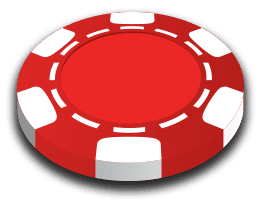Most people learn to play poker by amassing a set of rules to play by. Open this hand from middle position, but not that one. Raise this type of draw on the flop, but not that one. Play top pair this way on the turn, and fold if this happens.
While these rules are great for getting you to $2-$5 in the first place, they begin to let you down if your goal is to excel at the level and move up further. Part of the problem is that most of your regular opponents also play by roughly the same rules. If you are playing by the same heuristics as many of your opponents, it will be very difficult for you to get an edge.
I have two observations about $2-$5 no-limit that, in my opinion, are the key to understanding how to consistently beat the game.
- Nearly everyone in a live $2-$5 game plays way too many hands preflop.
- When you play too many hands preflop, you end up with too many weak hands on the flop, turn, and river. You must dispose of these hands somehow. There are only two ways to do it: call to showdown or fold. Both options are easily exploitable.
There’s a simple way to tell if people in your game are folding or calling with the extra hands. Look for showdowns. Does your game have lots of showdowns with several hundred dollar pots? If so, it’s likely people are calling with the hands. If not (and where I play it’s usually not), then people are folding the hands.
My entire $2-$5 strategy centers around trying to exploit what my opponents do with these extra bad hands. If they are folding them, like usual, then my goal is to see lots of turns and rivers in nice-sized pots where I can bet with most of my hands and get enough folds to show an automatic profit.
How Do Regs Kill Their Own Winrate?
This article is about three ways that $2-$5 regs shoot themselves in the foot. Each of these things is bad because it prevents a player from getting into an auto-profit turn or river situation.
Way #1. $2-$5 regs get it in on the flop too easily
I hate getting stacks in on the flop in a $2-$5 game unless I flopped a set. Why? Because the flop is not where the mistakes I’m trying to exploit occur. If people are folding too many bad hands on the turn and river, I need to get hands to the turn and river.
Here’s a typical example. I open with A♥ Q♥ and get called in a few spots. The flop comes J♥ 8♦ 6♥. A typical $2-$5 reg play here is just to shovel all the money into the pot. If they bet, you raise. If you bet and they raise, you shove.
In my opinion, you’re shooting yourself in the foot if you play hands this way. Think about how it turns out when the money goes in. Usually you’re on the wrong side of a flip. You’re against Kings. Or a set. Or two pair. Or whatever.
Maybe instead you’re on the right side of a flip. Big whoop. You’ve got a hand with tons of equity. It’s no matter of skill to realize that equity by sticking your stack in the middle.
Sure, you might get folds, but overall I think your typical $2-$5 player is much better at playing the flop than any other street. You can still get folds on the turn and river, and on those streets your opponents are a threat to make a huge blunder. I tend just to call with these hands and take them to the turn where my opponents make bigger errors.
Way #2. $2-$5 regs fold too often to small bets on the flop and turn
Your opponents play too many hands. That means they have too much junk in their ranges at nearly all points in a hand.
What if you had an out for your junk hands? Every time you got caught with junk on the flop or turn, you just bet a third of the pot to see if your opponent folds. If you get a fold more than 25 percent of the time, you’re gold. Just smallball away all that junk.
Basically, in many $2-$5 games this works. You can fire small bets at the regs and they will fold too much. They’ll call a lot too, but when you’re giving yourself 3-to-1 to get a fold with a total stinker of a hand, it’s better to fire than give up.
What’s the solution? Don’t fold. I hate to fold the flop. Someone makes it $20 preflop, and there are two calls. There’s $60 in the pot, and the flop comes with three cards.
Everyone checks to the raiser, who bets $30. Man I hate folding in this spot. I’ll fold if I’ve got an absolute zero of a hand. But say the flop is Q♠ 7♥ 4♣, and I’ve got 9♥ 8♥. I’m usually not folding. I’ve got backdoor draws and, more importantly, an opponent who is going to decide too often after I call that he’s got junk and that he should check-fold the turn.
You can’t just sneeze on the pot and expect me to go away.
Way #3. $2-$5 regs check too many hands to showdown
Knowing when your hand has “showdown value” is an important concept. Some hands are bad bets because they will tend to get called by all better hands, while they’ll get folds from worse hands. These are the ideal hands to check for their showdown value.
But here’s the thing. Typically for any given hand, that logic will hold only for a certain bet size. Implied after you say, “I can’t get folds from better or calls from worse,” is the follow-up, “if I bet half-pot.”
What if you bet $5? I bet you can get calls from worse.
What if you bet 3x pot? I bet you can get folds from better.
You control the bet size. You control whether your hand is really just “showdown value” or something else.
When your opponents fold too many hands on the river (because they’re playing too much junk to begin with), it’s sometimes better to take those showdown value hands—the third pairs and the ace-highs and the like—and bluff with them. If a half-pot bluff won’t work, fine. Bluff double the pot.
Final Thoughts
In your typical $2-$5 game, the regulars play too many hands preflop. That means they have too much junk on the flop, turn, and river. They will either call with this junk all the way to showdown, or they will fold it. These days, most regs will fold it on the turn and river. This creates many opportunities where betting the turn or river shows an automatic profit with any two cards.
Play for these opportunities. Don’t blindly shovel money into the pot on the flop! You cannot steal a big pot on the river if you are asking your opponent to run it twice after getting it in on the flop.
Don’t fold to puny flop bets. Flop c-bets can be a cheap ploy that players use to make something from their junk hands. Make your opponents commit real money before you fold.
And don’t be quick to check hands down. Sometimes you should just check a hand down for its showdown value, but $2-$5 players’ tendencies to fold too much on the later streets can make it more profitable to bluff.

